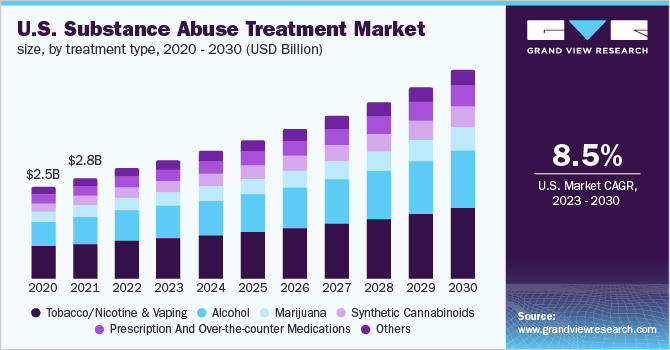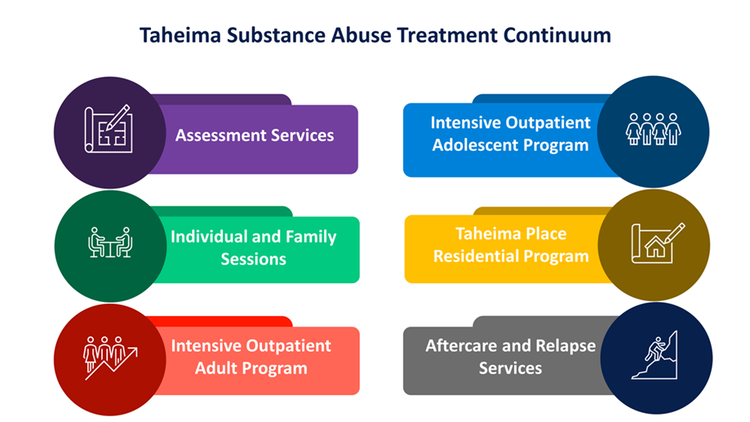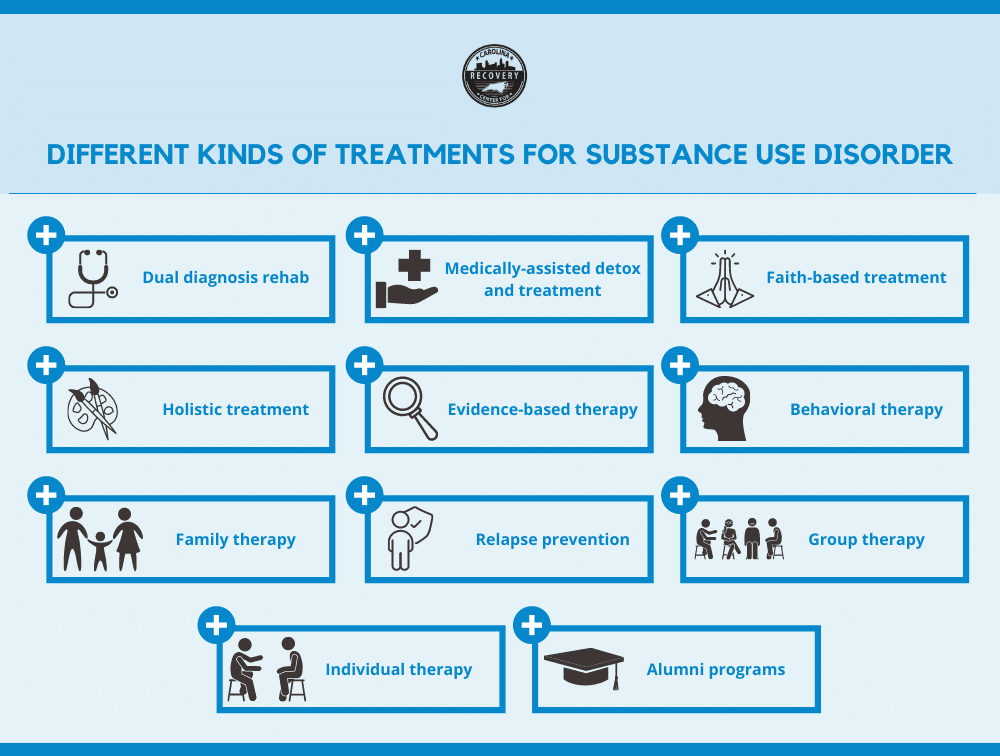Drug Abuse Rehabilitation: Pathways to Recovery and Recuperation
Substance Abuse rehabilitation plays an important duty in aiding people get over the struggles of addiction and reconstruct their lives. Whether a person is fighting alcohol dependence, medicine dependency, or prescription abuse, recovery facilities give an organized atmosphere for healing-- physically, psychologically, and mentally. In today's world, where the difficulties of addiction are extensive, understanding what rehab involves, its significance, and the types of solutions readily available can make a substantial distinction in one's journey to healing.
Recognizing Drug Abuse and the Requirement for Rehabilitation
Drug abuse affects numerous people worldwide, crossing age, sex, and socioeconomic lines. It is a complicated problem identified by the uncontrollable use of hazardous substances in spite of unfavorable effects. Alcohol and drugs can change mind chemistry, causing physical reliance and psychological instability. Over time, dependency takes control of a person's capability, habits, and judgment to function normally in culture. Numerous people that drop into this cycle usually discover it challenging to quit without specialist help.
Recovery ends up being vital due to the fact that addiction is not merely a lack of self-control-- it's an illness that affects the mind and body. Rehab centers provide evidence-based therapies that target the root triggers important Abuse instead of just the symptoms. These programs provide structured settings that motivate recovery with clinical cleansing, counseling, and skill-building. The supreme objective is to assist individuals create coping mechanisms and lead drug-free, efficient lives.
When an individual can no longer handle everyday responsibilities or maintain connections due to Substance use, the requirement for rehabilitation frequently arises. Family disputes, work performance problems, or wellness difficulties are often the very first indications that specialist aid is required. By looking for therapy early, people can protect against lasting damage to their physical health and emotional health.
The Importance of Substance Abuse Rehabilitation
Recovery is not just concerning quitting medicines or alcohol-- it has to do with improvement. The relevance of rehab hinges on its holistic approach to healing, focusing on the individual all at once as opposed to simply the addiction. Numerous people enter rehab at their floor, often feeling helpless and isolated. The organized setting of a rehabilitation center provides them with the devices and support to rediscover objective and self-respect.

One of the crucial advantages of rehab is the medical guidance offered throughout cleansing. Withdrawal signs and symptoms can be intense and, sometimes, lethal. Experts keep an eye on the procedure, guaranteeing safety and comfort while lowering the dangers of relapse. Past physical healing, rehab additionally addresses the psychological aspects of dependency with treatment and therapy. Cognitive-behavioral therapy (CBT), inspirational talking to, and group sessions assist individuals recognize their triggers and learn healthy coping devices.
Rehabilitation provides long-term benefits that expand past the individual. Family members regain security, partnerships are mended, and areas benefit when people reintegrate as healthy and balanced, contributing participants. Substance Abuse not just harms the individual involved yet also influences loved ones. Rehabilitation aids break this cycle, cultivating healthier environments for every person involved. In significance, rehabilitation is a financial investment in life, health, and the future.
Solutions Offered basically Abuse Rehabilitation Centers
Recovery facilities provide a vast array of solutions tailored to the one-of-a-kind needs of each person. The goal is to produce a personalized treatment strategy that deals with physical, psychological, and social facets of recuperation. The very first stage of the majority of programs is medical detoxification, where the body is cleansed of harmful compounds under professional guidance. Detoxification helps manage withdrawal symptoms safely, leading the way for more restorative treatments.
Adhering to detoxification, individuals usually relocate right into treatment and therapy sessions, which create the core of dependency therapy. Individual treatment allows clients to work one-on-one with accredited therapists to reveal underlying issues, such as injury or mental health problems that might have added to dependency. Team treatment, on the other hand, cultivates peer support and accountability. Sharing experiences with others who have dealt with comparable battles aids people feel comprehended and inspired.

Types of Rehab Programs Available
Not all rehab programs are the exact same. Relying on the seriousness of addiction, individual preferences, and life scenarios, people can choose from numerous sorts of rehab programs. The most usual are inpatient, outpatient, and household treatment programs. Each deals distinct advantages developed to provide to different degrees of care.
Inpatient rehabilitation programs need individuals to remain at the therapy center full-time, typically for 30, 60, or 90 days. This atmosphere provides day-and-night clinical and emotional support, getting rid of interruptions and lures from daily life. Inpatient care is ideal for those with serious dependencies or co-occurring mental health disorders, as it makes sure comprehensive supervision and extensive therapy.
Outpatient rehab programs provide more versatility for people who can not dedicate to full-time treatment. Individuals participate in treatment sessions get redirected here numerous times a week while continuing to live in the house or maintain work obligations. Outpatient treatment is best fit for those with light to modest addictions or for those transitioning from inpatient treatment. It enables people to use coping techniques in real-world setups while still obtaining specialist assistance.
There are also specialized rehab programs that accommodate certain teams, such as women, professionals, or adolescents. Some centers integrate faith-based approaches, while others concentrate on all natural recovery that incorporates physical health and mindfulness techniques (Inpatient rehab). Additionally, high-end rehab centers provide high-end amenities and private accommodations for those seeking convenience together with treatment. Despite type, the main objective continues to be the very same-- to guide individuals toward sustained recovery
Usual Factors People Need Rehab
Dependency does not take place overnight, nor does This Site it have a single cause. People look for rehabilitation for different reasons, usually connected to both individual and ecological elements. One of one of the most typical factors is persistent anxiety and trauma. Individuals that have experienced emotional or physical trauma often transform to materials as a coping mechanism. Over time, this actions ends up being habitual, bring about reliance. Rehabilitation aids these individuals procedure unsettled pain with treatment and emotional assistance.
One more significant factor is mental wellness disorders, such as depression, anxiousness, or bipolar illness. When mental disease goes untreated, people may self-medicate making use of drugs or alcohol to escape their emotional distress. This dual-diagnosis circumstance requires specific therapy that attends to both dependency and mental health and wellness at the same time. Rehabilitation centers furnished with psychological care can assist stabilize these conditions via medication management and treatment.
Social stress and environmental influence also play a significant duty in Substance Abuse. Peer pressure, household dysfunction, or direct exposure to addictive compounds from a young age can make people more at risk to addiction. For some, addiction begins innocently-- with prescription medicine adhering to an injury or surgery-- however rises into abuse. Rehab provides a risk-free and structured course to damage devoid of these cycles. It equips people to recognize triggers, construct much healthier practices, and re-establish control over their lives.
The Journey of Healing and Life After Rehabilitation
Healing doesn't finish the day an individual finishes a rehabilitation program-- it's a lifelong procedure of development and self-discovery. Life after rehabilitation includes difficulties, yet additionally possibilities for revival. Several individuals explain it as a "second possibility" to deal with gratefulness, quality, and objective. The lessons discovered during therapy, such as self-discipline, psychological awareness, and resilience, come to be the structure for a meeting life without addiction.
After leaving rehab, individuals are encouraged to get involved in aftercare programs and support networks. Regular participation in group conferences or treatment sessions assists preserve accountability and prevents regression. Sober living settings can likewise use transitional housing for those who require additional framework prior to fully rehabilitating right into society - dual diagnosis rehab NJ. Maintaining a solid support group of family members, close friends, and peers is vital for long-lasting success
Moreover, healing opens the door to individual growth. Lots of individuals seek education and learning, brand-new occupations, or volunteer job as component of their healing trip. They learn to handle stress via healthy and balanced outlets such as workout, reflection, or innovative leisure activities. While relapses can happen, they are seen not as failings but as chances to reinforce one's commitment to soberness. Ultimately, chemical abuse rehabilitation serves as the foundation for a life of freedom, equilibrium, and objective.

Conclusion: Selecting Hope and Recovery
Chemical abuse rehab stands for more than a therapy-- it represents hope. It is a bridge in between despair and revival, offering individuals the possibility to redeem their lives from addiction's grasp. Through specialist care, structured therapy, and thoughtful support, people can rediscover their stamina and objective. Comprehending the solutions offered, the explanation sorts of rehabilitation available, the value of rehabilitation, and the factors people need it gives clearness for those looking for help or supporting liked ones on their trip.
Choosing rehab is not an indication of weak point yet of guts-- the nerve to confront pain, rebuild identity, and accept a brighter future. Recuperation is possible, and with the right support, every action toward healing brings a person closer to lasting flexibility and peace.
Substance Abuse rehab plays a crucial duty in helping individuals get rid of the battles of dependency and rebuild their lives. The need for rehab typically emerges when a person can no much longer take care of daily obligations or preserve partnerships due to Substance usage. Inpatient rehabilitation programs require individuals to stay at the treatment facility permanent, normally for 30, 60, or 90 days. Outpatient rehab programs supply even more adaptability for people that can not devote to full time therapy. After leaving rehabilitation, people are encouraged to get involved in aftercare programs and assistance networks.